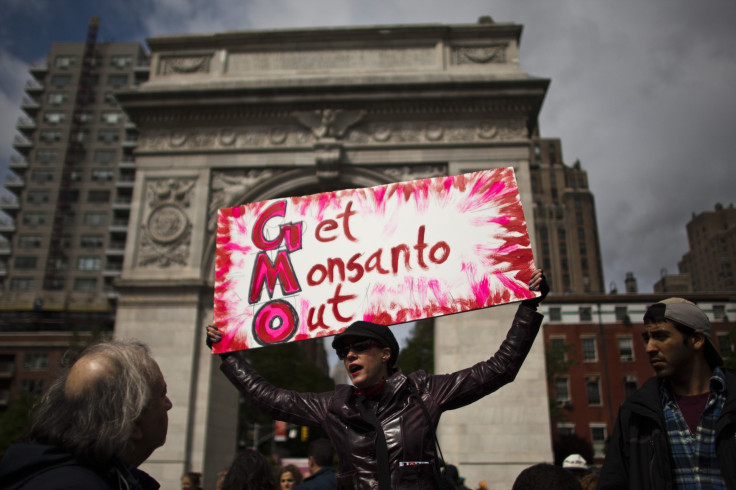‘Monsanto Protection Act’ Killed In Senate: Controversial Provision Removed From Spending Bill

The so-called “Monsanto Protection Act” has been removed from a Senate spending bill to the delight of those opposed to the controversial provision.
The provision would have stayed on the books under a continuing resolution passed by the House of Representatives last week, but U.S. Sens. Barbara Mikulski, D-Md., and Jeff Merkley, D-Ore., led a successful charge to have the language removed from the Senate version of the bill.
“One week ago, I asked, ‘Who pulls more weight on Capitol Hill? The agrichemical companies like Dow and Monsanto, or the food movement?'” Elizabeth Kucinich, policy director for the Center for Food Safety, said in a statement. “Thanks to the leadership of Senator Barbara Mikulski we now know the answer: the food movement.”
Mikulski introduced an amendment to have the language of the bill changed to remove the “Monsanto Protection Act” removed. The amendment was approved earlier this week, and the provision will expire at the end of this month.
A massive groundswell of public opposition to the “Monsanto Protection Act” began in March, when news of its existence hit the mainstream.
The provision, officially Section 735 of the HR 933 continuing resolution passed in March, came under fire because food safety advocates warn that it strips federal courts of the authority to halt the sale and propagation of genetically modified seeds and crops if safety tests reveal concerns about their safety.
The legislation was written by Sen. Roy Blunt, R-Mo., in collaboration with Monsanto Company -- which has become the public face of the virulent debate over GMOs.
The furor over the “Monsanto Protection Act” and GMOs reached fever pitch in May, when hundreds of thousands of people participated in a global protest known as the March Against Monsanto. The company was even named 2013’s “most evil corporation” in a June poll, which was likely in large part a response to the controversy over the provision.
Mikulski’s amendment was not the first one aimed at repealing the “Monsanto Protection Act.” Sen. Jeff Merkley, D-Ore., introduced a similar amendment near the height of the controversy in May, but it was not adopted.
Interestingly, the Center for Food Safety blamed Mikulski for allowing the provision to make it into continuing resolution via a “hidden backroom deal” back in March.
“In this hidden backroom deal, Sen. [Barbara] Mikulski turned her back on consumer, environmental and farmer protection in favor of corporate welfare for biotech companies such as Monsanto,” Andrew Kimbrell, executive director of the Center for Food Safety, wrote in a statement at the time. “This abuse of power is not the kind of leadership the public has come to expect from Sen. Mikulski or the Democrat Majority in the Senate.”
Outrage at the existence of the “Monsanto Protection Act” was intense even before the bill containing it was passed. In the days leading up to its being signed by President Barack Obama, more than 250,000 voters signed a petition asking him to veto the bill, and Food Democracy Now protesters organized by the Food Democracy Now advocacy group demonstrated against it in front of the White House.
Dave Murphy, founder and executive director of the Food Democracy Now advocacy group, lauded the Senate's move to remove the controversial provision.
“This is a major victory for the food movement and all those who care about openness and transparency in their government,” Murphy wrote in a statement. “And a sign that our voices can make the difference when we are effectively organized.”
Monsanto did not respond immediately to a request seeking comment on the new developments surrounding the “Monsanto Protection Act,” but Kelly J. Clauss, a spokeswoman for the company, sent a statement on the provision to IBTimes back in March.
“A broad bipartisan group of legislators in both the House and Senate have supported the provision dating back to June 2012, and it passed with broad bipartisan support,” Clauss explained at the time. “As we understand it, the point of the Farmer Assurance Provision is to strike a careful balance allowing farmers to continue to plant and cultivate their crops subject to appropriate environmental safeguards, while USDA conducts any necessary further environmental reviews.”
This article will be updated if and when Monsanto responds to the request for comment.
UPDATE: In lieu of commenting, a Monsanto spokesman referred International Business Times to the company's blog post on the provision expiring. You can read that blog post here.
© Copyright IBTimes 2024. All rights reserved.





















